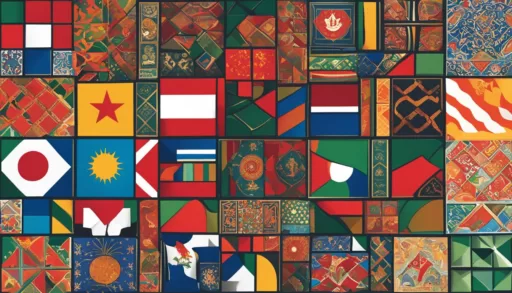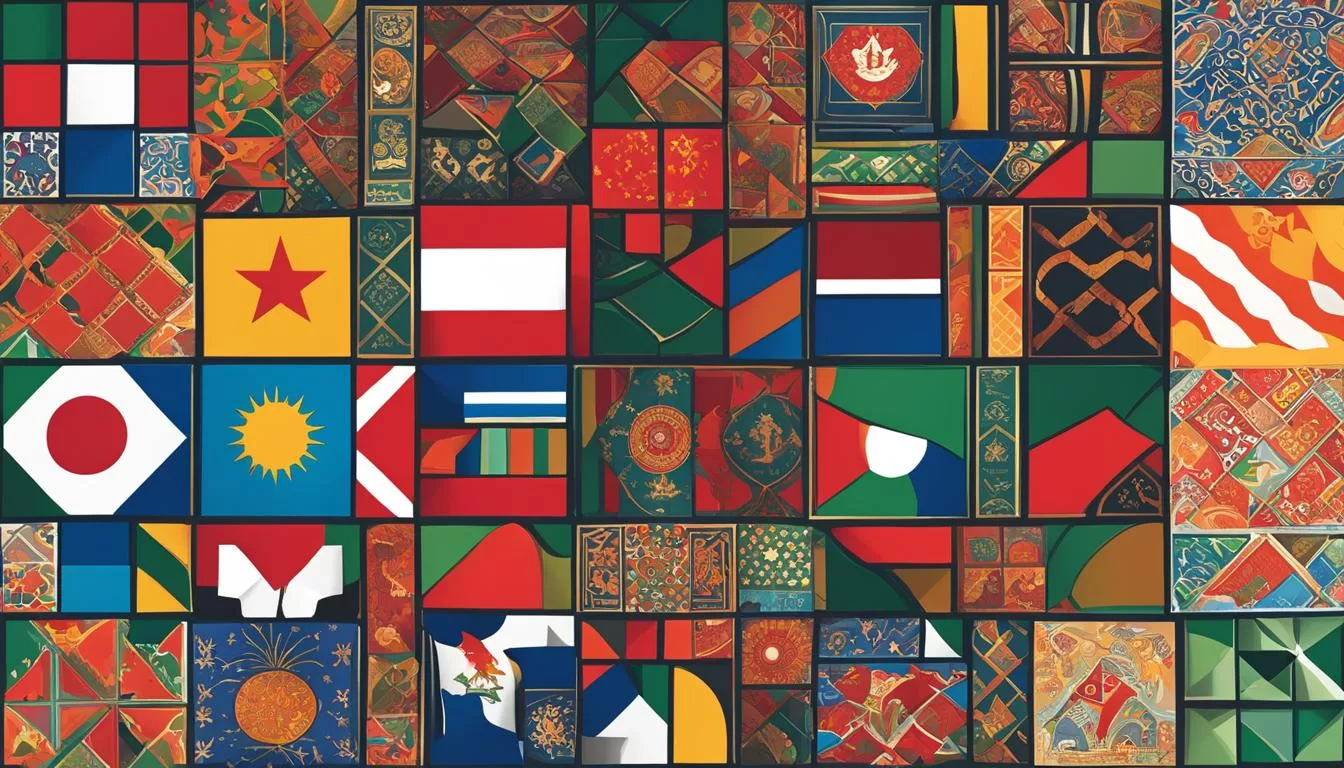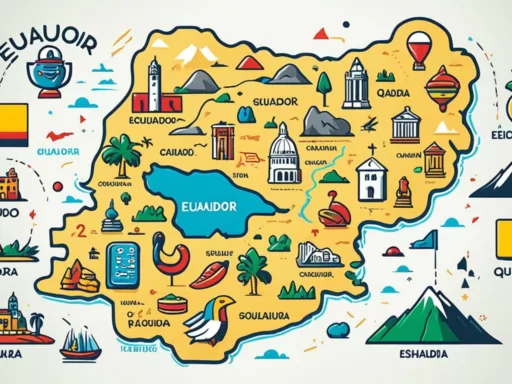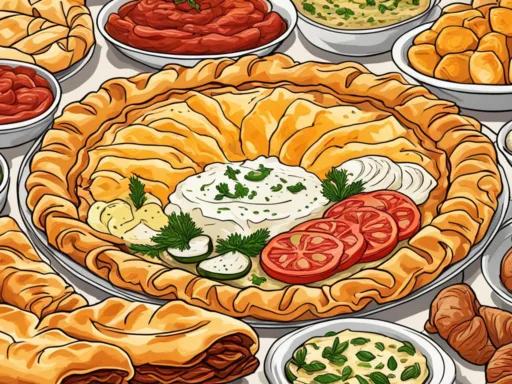The depth of Georgia’s cultural fabric is vividly observed through its composite of languages. Traversing beyond the capital city of Tbilisi into Georgia’s highlands and lowlands, one can discover a rich tapestry of linguistic diversity. Within this Caucasus nation, the voices of its people weave a narrative of its past, present, and emergent multilingualism in Georgia. At the heart of Georgia’s language demographics is the Georgian language itself—a tongue that resonates with over the majority of its populace, signaling not just means of communication but identity and heritage.
As Georgia inked its stories into the annals of history, the spoken word—infused in its marketplaces and at its dinner tables—revealed a linguistic diversity evocative of the land’s multifaceted past. Today, languages spoken in Georgia are a testament to its geographic and historical crossroads, with an array of languages that decorate each corner of society—from the snow-tipped peaks of the Greater Caucasus to the balmy Lowland plains.
Key Takeaways
- Georgian serves as the official language and primary mode of communication, representing a significant facet of Georgia language demographics.
- Globally, the Georgian language extends its reach, marking its presence amongst diaspora communities.
- Georgia’s linguistic diversity is punctuated by the coexistence of minority languages alongside Georgian.
- English and Russian language use illustrate the nuanced dimensions of multilingualism in Georgia.
- Georgia retains its linguistic heritage while adapting to the lingual influences of globalization and diplomacy.
- Awareness of the languages spoken in Georgia enriches the understanding of the nation’s cultural and social dynamics.
Georgia’s Linguistic Landscape
The cultural heart of Eastern Europe and Western Asia, where the tapestries of multiple civilizations intersect, is the sovereign state of Georgia. Here, amidst its rolling valleys and ancient cities, languages in Georgia flourish through a diverse chorus of tongues reflective of its complex history. This region, comprising approximately 26,900 square miles and home to an estimated 3.7 million inhabitants, harbors a vibrant confluence of ethnicities and their corresponding vernaculars.
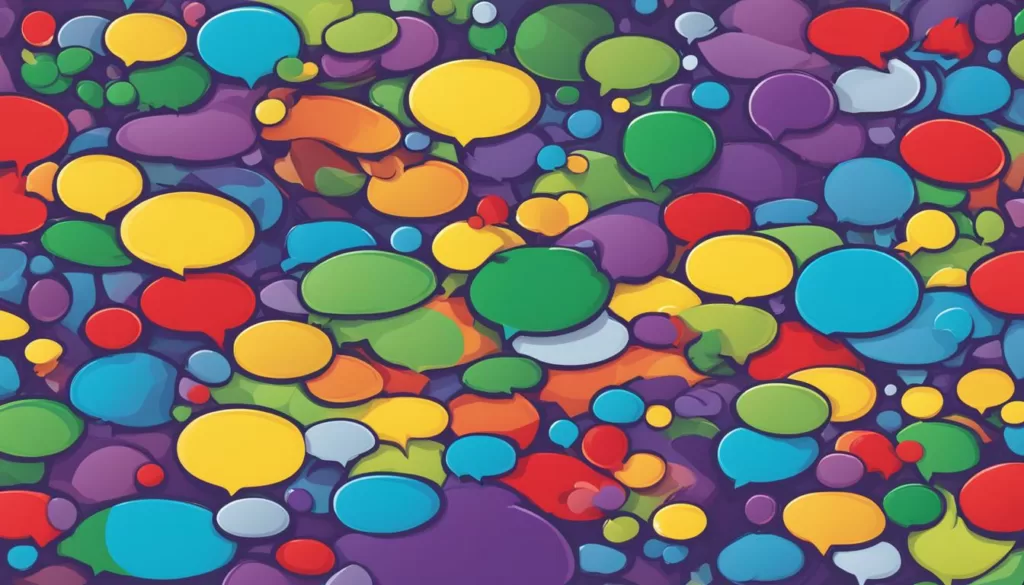
An overwhelming majority of residents, constituting around 86%, are ethnic Georgians. They imbue the nation’s heritage and daily life with the rich sounds of the official languages in Georgia, thus fostering a unique linguistic identity. Georgian remains a testament to the nation’s past and a present-day cultural pillar, but it is far from the only language spoken within its bustling markets and serene countryside.
Georgia’s language diversity stems not only from the predominant Georgian but also from the presence of approximately 14 other actively spoken languages. This linguistic diversity in Georgia paints a vivid palette that includes languages traditionally preserved by Armenians, Assyrians, Azerbaijanis, Greeks, Russians, and Ukrainians. Each contributes its phonetic hues to the country’s linguistic canvas.
| Language | Speakers in Georgia | Language Family |
|---|---|---|
| Georgian | Approx. 3.2 million | Kartvelian |
| Russian | Several communities | East Slavic |
| Armenian | Minority populations | Indo-European |
| Azerbaijani | Approx. 233,000 | Turkic |
| Assyrian | Small communities | Semitic |
| Greek | Historical communities | Indo-European |
Through this intricately woven fabric of cultural expression, Georgia stands as a testament to the ongoing story of human interaction and societal evolution, an audible legacy captured in the symphony of its language diversity. Each thread in the tapestry tells a story of not just a people, but of movements, of trade, and of life within the cradle of civilization that Georgia so proudly epitomizes.
Languages Spoken in Georgia: A Closer Look at Georgian
Embarking on a linguistic journey through Georgia reveals a language steeped in history and pivotal for understanding the region’s culture. The Georgian language, a vibrant element of the country’s identity, is more than just a system of communication. It’s an echo of the nation’s soul, resonating with a tradition that dates back to antiquity and offering insight into the societal fabric of this diverse land.
The Kartvelian Language Family
Georgian, the most prominent of the Kartvelian languages, presents a linguistic profile quite distinct from those of both Europe and Asia. Despite extensive research, no definite genetic links connect the Kartvelian family to other language groups, underscoring its unique place in the linguistic world. Georgian shares a closer bond with Zan languages such as Svan and Megrelian, with these siblings forming an intricate part of the expressive tapestry of linguistic diversity in Georgia.
Georgian Dialects
The sonic landscape of Georgia is rich with an array of Georgian dialects, each carrying its own cadence and linguistic nuances. Broadly splitting into Eastern and Western clusters, these dialects are a testament to language diversity in Georgia. Despite their distinct features, the dialects remain mutually intelligible and influence one another symbiotically, speaking to the inherent connectivity within the nation’s linguistic environment.
Georgian Language Today: Usage and Demographics
In contemporary Georgia, the Georgian language serves as both the official mode of communication and a mirror reflecting Georgian language demographics. With an estimated four million speakers, accounting for 87.6% of the population considering it their primary language, Georgian’s vibrancy is unmistakable. Beyond the borders of Georgia, the language’s influence trickles into regions of Azerbaijan and northeastern Turkey, signaling its expansive cultural footprint and underlining the importance of Georgia language statistics in broader Eurasian terrain.
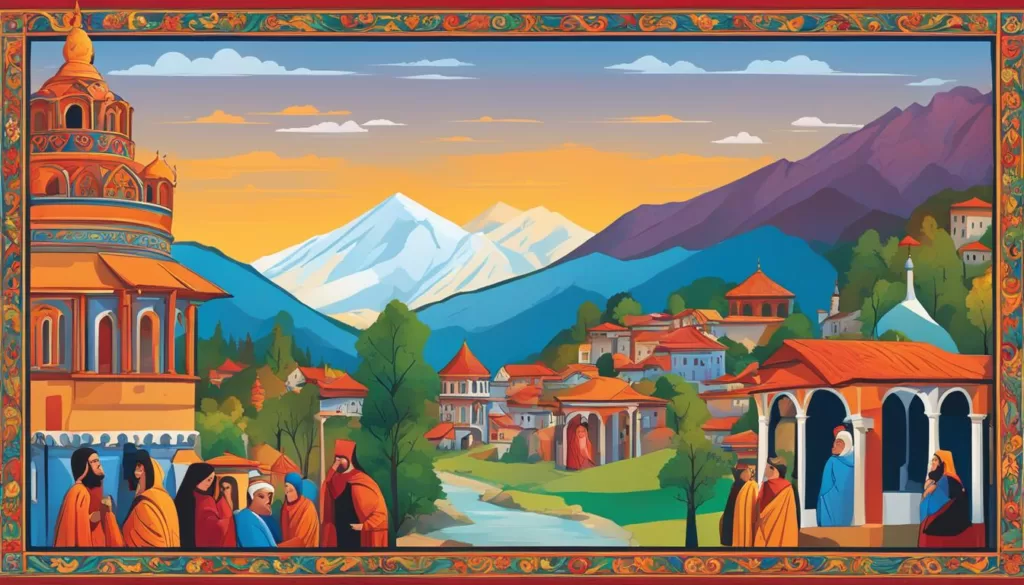
The narrative of the Georgian language, from its Old Georgian roots through to the Modern Georgian that pulses through the nation’s veins today, is both a tribute to the past and a bridge to the future. Through each uttered syllable and penned word, Georgia continues to reclaim its heritage and redefine its linguistic identity in an ever-evolving world.
Multilingualism in Georgia: Other Prominent Languages
While Georgian serves as the cornerstone of the national vernacular, Georgia’s linguistic landscape is enriched by other prominent languages. The coalescence of various tongues shapes the multifaceted communicative fabric of the nation. Let’s delve into these diverse dialogues and explore the influence and growth of the Azerbaijani language, the historical footprint of Russian, and the burgeoning prevalence of English in Georgia.
Azerbaijani: The Language of Georgia’s Neighbor
The Azerbaijani language in Georgia plays a significant role within the nation’s demographic mosaic. Accounting for 6.2% of the population, the Azerbaijani language resonates with the cultural and social threads of its speakers. Rooted in the Turkic language family, it not only acts as the linguistic medium for Georgia’s Azerbaijani community but also mirrors the profound cultural connections with neighboring Azerbaijan, where it is recognized as the official language.
The Russian Influence on Georgia’s Language Demographics
In the post-soviet era, Russian language influence in Georgia has seen fluctuations. Although constituting only 1.2% of the first-language speakers, Russian remains interwoven in the country’s tapestry, particularly among the older generations. Its status has evolved over time, shifting from prominence during the Soviet Union to experiencing marginalization in the current geopolitical climate, as Georgia charts its independent course.
The Status and Growth of English in Georgia
The English language growth in Georgia is notable, reflecting the country’s aspirations for global participation and economic advancement. The Georgian government has emphasized English education, leading to its mandatory inclusion in school curricula and attracting English-speaking educators from across the globe. As a result, there are emergent considerations to elevate English to an official state language, marking a significant shift in Georgia’s linguistic identity.
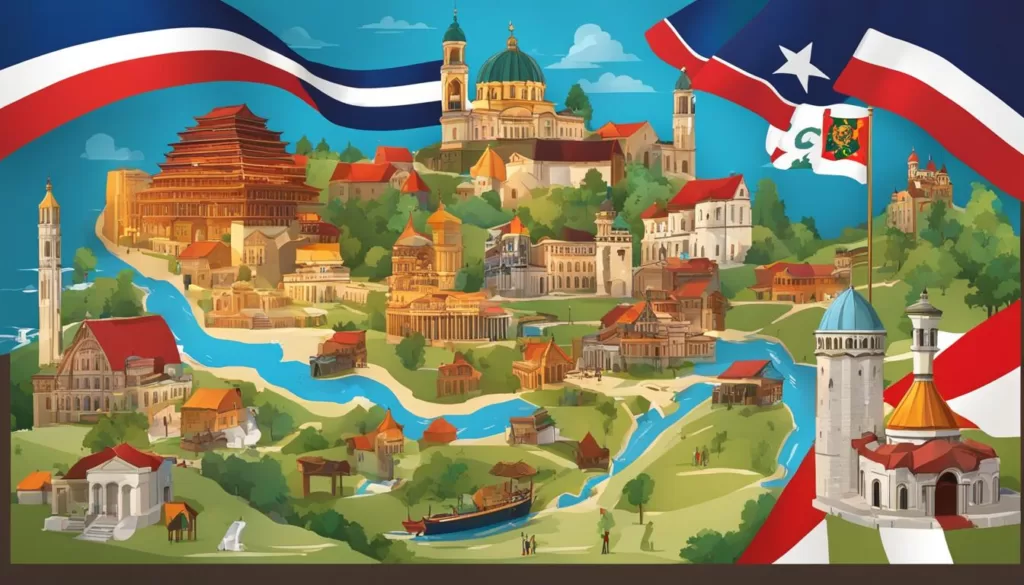
Georgia’s trilingual trajectory highlights its complex socio-cultural evolution and the governmental foresight in embracing linguistic diversity as a vital component of national development. These languages, each with its unique nuances and significance, contribute to ensuring Georgia’s voice is heard and understood on both regional and international stages.
The Role of Minority Languages in Georgia’s Culture
The colorful mosaic of linguistic diversity in Georgia is significantly enriched by its minority languages. These languages serve as a portal into the traditions and rich heritage that shape the country’s societal norms. It is within these idiomatic expressions that we find the heart of Georgia’s cultural narrative, where each minority language in Georgia adds depth and perspective to the overall cultural discourse.
While Georgian remains the lingua franca, the array of minority languages such as Svan, Urum, and Assyrian, each contributes a unique thread to Georgia’s linguistic quilt. These languages are more than communication tools—they represent the essence of diverse communities, each with stories to tell and customs to share. Whether through folk tales told in the highlands or communicated through everyday interactions, the importance of preserving these languages is paramount.
In Georgia, the celebration of minority languages extends beyond parlance to foster a vibrant cultural dialogue. Found in the folk music echoing through the valleys, the religious ceremonies practicing ancient rites, and even in the colorful patterns woven into traditional textiles, these languages manifest the richness of Georgia’s cultural life.
Let us delve into a comparative exploration of how these languages compare in their use and significance:
| Minority Language | Approximate Number of Speakers | Regions Spoken | Cultural Significance |
|---|---|---|---|
| Svan | 30,000 [1] | Svaneti region | Preserves ancient traditions and folklore. |
| Urum | Security Check Required | Primarily in Kvemo Kartli | Reflects the heritage of the Greek-speaking communities in Georgia. |
| Assyrian | Security Check Required | Scattered communities throughout Georgia | Embodies rituals and customs of the Assyrian people. |
| Azerbaijani | 233,000 [1] | Kvemo Kartli and Kakheti | Fosters cross-border cultural exchange with Azerbaijan. |
| Armenian | Security Check Required | Samtskhe-Javakheti | Safeguards the historical narratives of the Armenian minority. |
The reverberation of every minority language in society is the reaffirmation of Georgia’s commitment to linguistic diversity. They are the living memory of its communities’ connections to their ancestral lands, a bridge to the past, and a vital force propelling them towards the future. The surrounding social dynamics, ever shifting, affirm the relevance of each linguistic strand interlaced in the nation’s cultural fabric.
Ensuring the continued vibrancy of these minority languages is tantamount to maintaining the rich cultural fabric of Georgia. It is through education, media representation, and legislative protections that these tongues continue to echo throughout generations. Their preservation is a collective effort, a celebration of identity and history that bolsters the unique linguistic diversity in Georgia.

[1] These numbers are representative and intended for illustrative purposes based on available data and not precise current figures.
Georgia’s Alphabet and Pronunciation: An Overview
Delving into the heart of Georgian linguistic expression reveals more than just spoken words; it uncovers an intricate system of symbols and sounds that form the backbone of this ancient language. The Georgian alphabet is not merely a tool for writing but a cultural emblem that has withstood the test of time, embodying the nation’s enduring spirit and intellectual heritage.
The Unique Georgian Script
At the core of the Georgian language lies the Georgian script, specifically the Mkhedruli. With its flowing characters and distinct aesthetics, this writing system comprises 33 letters, each meticulously designed to represent the phonemes that construct the Georgian language pronunciation. Historical exploration into Georgia’s literacy reveals three scripts, of which today’s prevalent Mkhedruli is the third, serving as a testament to the adaptability and resilience of the Georgian written word over centuries.
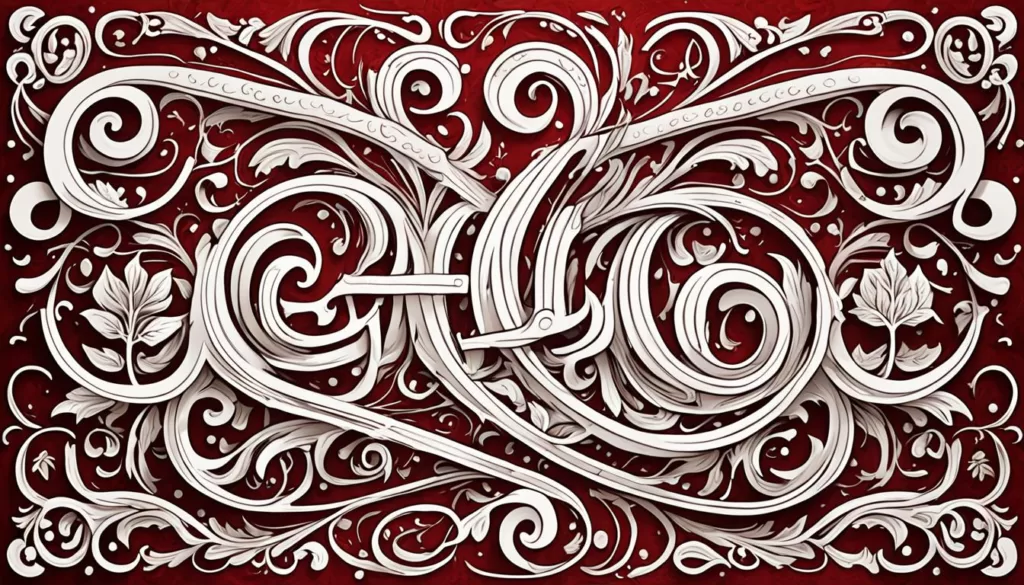
Phonological Nuances of Georgian
The Georgian phonology is as complex as it is unique, marked by its wealth of consonants and characteristic harmonic clusters. These phonological features include a wide range of consonant sounds such as aspirated, ejective, and voiced, which create rich and varied auditory experiences for the speaker and listener alike. The Georgian vowel system adds to this richness with its centralized vowel phonemes that are less common in many other language phonologies.
Language Aids and Resources for Georgian
For those fascinated by the nuances of the Georgian language, or for linguists and language learners, various language aids for Georgian are available. These span from the comprehensive English-Georgian dictionaries provided by Glosbe to educational platforms like Learn101, which tailor their instruction to the intricacies of the language. Additionally, popular language learning apps such as Duolingo and Babbel offer courses aimed at building proficiency in Georgian, democratizing access to this culturally significant language. These learning resources for Georgian invite enthusiasts from around the world to partake in the linguistic tradition of Georgia, promoting its preservation and appreciation across linguistic communities.
Whether one is beginning their journey of learning the Georgian language or seeking to understand its place in the world of phonetics and alphabets, the resources at hand open the door to a world rich with linguistic heritage. They allow the Georgian alphabet and its pronunciation to be disseminated far and wide, nurturing a global understanding of Georgia’s unique linguistic identity.
Conclusion
The languages spoken in Georgia reveal a cultural panorama as diverse and vivid as the country’s varied landscapes. The Georgian language stands prominently at the center of this linguistic array, embodying the nation’s heritage and continuously nurturing its cultural identity. As the principal mode of communication for the majority of the population, it is a beacon of the rich traditions and enduring history that have shaped Georgia’s social fabric.
Yet, the story of linguistic diversity in Georgia does not end with its titular language. The spectrum of minority tongues—each lending its unique cadence and cultural richness to the collective narrative—highlights the nation’s respect and preservation of multifaceted linguistic heritages. From the timbered halls of Svaneti to the bustling streets of Tbilisi, these voices together articulate a country that values the roots of its identity while embracing the winds of change.
Moreover, Georgia’s pivot towards global engagement is marked by the escalating significance of English within its borders. This trend underscores not just a commitment to international cooperation and socio-economic progression, but also a willingness to evolve linguistically. As the world watches, Georgia’s linguistic tapestry—a blend of ancient scripts, heartfelt dialects, and emerging global tongues—continues to be woven with threads both old and new, reflecting the country’s dynamic ethos and its place on the global stage.
FAQ
What are the primary languages spoken in Georgia?
The primary language spoken in Georgia is Georgian, which is the official language. Other languages spoken include English, Russian, Azerbaijani, Svan, and Urum, reflecting the country’s language demographics and multilingualism.
How diverse is the linguistic landscape in Georgia?
Georgia boasts a rich linguistic landscape with around 14 languages actively used. This diversity includes the official languages in Georgia as well as languages spoken by ethnic minorities, contributing to the language diversity in Georgia.
What language family does Georgian belong to?
Georgian is part of the Kartvelian language family, which is distinct from European and Asian language groups and includes other languages like Svan and Megrelian.
Are there different dialects of the Georgian language?
Yes, the Georgian language has various dialects classified into East and West Georgian groups. These dialects are mutually intelligible and showcase the linguistic diversity in Georgia.
Who speaks the Georgian language today?
Today, the Georgian language is predominantly spoken by about 87.6% of the population in Georgia, with approximately four million speakers in the country and Georgian language demographics extending into other nations.
How prevalent is the Azerbaijani language in Georgia?
Azerbaijani is spoken by 6.2% of the population, mainly by the Azerbaijani community living in Georgia, and exhibits the Azerbaijani language in Georgia’s multicultural fabric.
What influence does the Russian language have in Georgia?
The Russian language has historically had a significant influence in Georgia, with 1.2% of the population speaking it as a first language. This reflects the Russian language influence in Georgia’s language demographics, particularly during the Soviet era.
Is English becoming more important in Georgia?
English is experiencing growth as a second language due to educational reforms, economic aspirations, and aspirations for global integration. There’s even consideration for adopting English as an official language in the future, indicating the English language growth in Georgia.
What role do minority languages play in Georgia’s culture?
Minority languages like Svan, Urum, and Assyrian are integral to Georgia’s cultural identity. They reflect the history, traditions, and social customs of various ethnic communities within the country, enriching the linguistic diversity in Georgia.
What is unique about the Georgian script?
The Georgian script, known as Mkhedruli, is unique to the Georgian language, comprising 33 letters. It is the main writing system used today in Georgia and showcases the country’s cultural heritage.
Are there distinctive aspects of Georgian phonology?
Yes, Georgian phonology is known for its harmonic consonant clusters and a rich array of consonants that include aspirated, ejective, and voiced forms. The vowel system consists of five vowel phonemes, which all are relatively centralized.
Where can I find resources to learn Georgian?
There is a wide range of language aids and resources available for learning Georgian, from online dictionaries and courses like those provided by Glosbe and Learn101 to language apps including Duolingo and Babbel.
